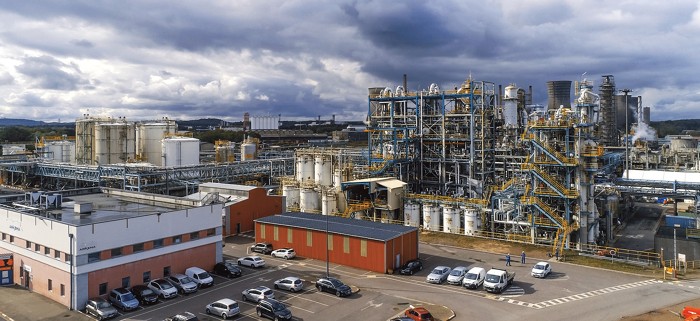Advertisement
Grab your lab coat. Let's get started
Welcome!
Welcome!
Create an account below to get 6 C&EN articles per month, receive newsletters and more - all free.
It seems this is your first time logging in online. Please enter the following information to continue.
As an ACS member you automatically get access to this site. All we need is few more details to create your reading experience.
Not you? Sign in with a different account.
Not you? Sign in with a different account.
ERROR 1
ERROR 1
ERROR 2
ERROR 2
ERROR 2
ERROR 2
ERROR 2
Password and Confirm password must match.
If you have an ACS member number, please enter it here so we can link this account to your membership. (optional)
ERROR 2
ACS values your privacy. By submitting your information, you are gaining access to C&EN and subscribing to our weekly newsletter. We use the information you provide to make your reading experience better, and we will never sell your data to third party members.
Climate Change
Firms advance decarbonization technologies at European plants
Investments in purification and electrification are intended to help meet climate targets
by Vanessa Zainzinger, special to C&EN
October 5, 2023
| A version of this story appeared in
Volume 101, Issue 33

Chemical firms in Europe are pushing forward with plans to implement technologies they say will reduce the environmental footprint of existing manufacturing processes. They say the projects are intended to help achieve carbon neutrality in the European Union by 2050.
Arkema is implementing a new purification technology at its acrylic monomer plant in Carling, France, that it says will reduce the site’s carbon dioxide emissions by 20%. The firm plans to invest about $135 million in the process.
The Carling facility is one of the major acrylic plants in Europe. It produces monomers used in coatings, adhesives, water treatment, and other markets.
Richard Jenkins, senior vice president of Arkema’s coatings division, says decarbonizing existing production processes is part of Arkema’s overall climate plan. “It is a journey and requires a combination of levers we can pull to improve how materials are made,” he says.
Separately, Solvay announced plans to construct an electric furnace at its silica plant in Collonges, France, by 2025. It says in a press release that the move is part of a “strategic shift towards clean energy sources” and will reduce CO2 emissions related to silica production by 20%.
And in September, BASF installed the last transformers at a demonstration steam cracker furnace in Germany that is heated with renewable electricity rather than fossil fuel. BASF claims that the approach can reduce CO2 emissions by 90%.
The European Environmental Bureau (EEB), a nonprofit, says process transformation at chemical plants is an important step toward decarbonization. But the group says the challenge of moving away from fossil-based feedstock remains.
“An electrical cracker will still crack (fossil) naphtha, and its (fossil) tail-gas will be used elsewhere, instead of powering the cracker,” Jean-Luc Wietor, the EEB’s deputy policy manager for chemicals/sustainable production and best available techniques, says in an email.


Join the conversation
Contact the reporter
Submit a Letter to the Editor for publication
Engage with us on Twitter